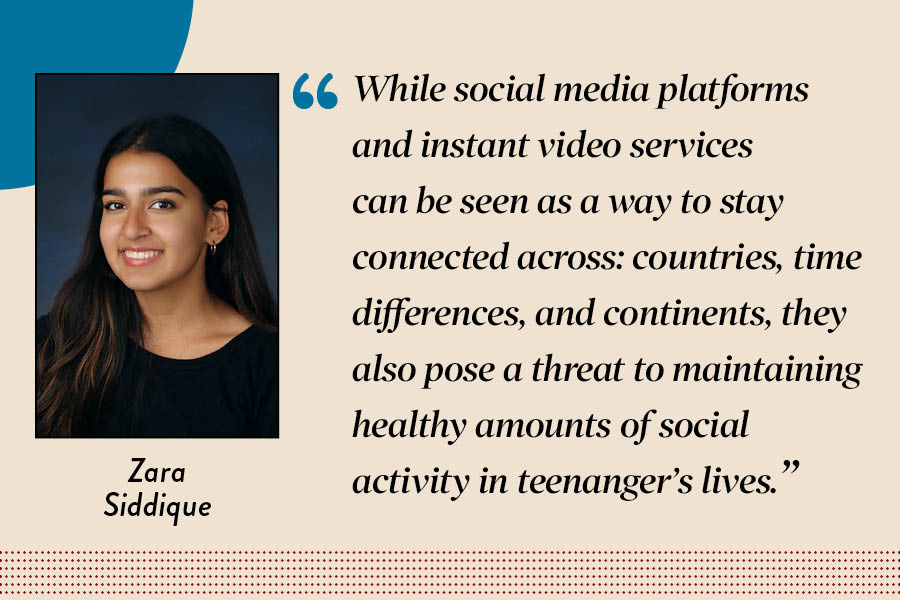Desks are covered with Post-its, loose sheets of paper and flash cards. It’s a typical week dominated by homework and studying. Any U-High student knows and has experienced these sorts of days: every waking moment consists of some sort of work. School days are filled with asking questions about upcoming exams, and then returning to your studying during breaks. It’s easy for students to dismiss the importance of spending time socializing, especially when they are so easily deceived by social media, instant messaging and instant video applications.
When I was younger I depended on face to face interaction with friends and family as a means to relieve stress and to separate myself from my own internal anxieties from school or extracurricular activities. As I’ve now almost completed high school I have noticed how I and others get caught up in the allure of an alleged social interaction through electronics.
While social media platforms and instant video services can be seen as a way to stay connected across countries, time differences and continents, they also pose a threat to maintaining healthy amounts of social activity in teenanger’s lives.
Texting, FaceTime and watching social media videos aren’t substitutes for social interaction. The reality is that no matter how engaging and de-stressing they may seem, one is still isolated when using them.
In 2019, the National Institutes of Health published an article on the importance of face-to-face interaction, explicitly highlighting the connection between interpersonal relationships and physiological health. The study also noted that despite one’s ability to communicate with friends and family online, there are still distinct ties between heightened screen time and poor mental well-being.
It’s so easy to count online interactions such as messaging a friend before bed, or a quick FaceTime call on the weekend, as real contact. This contact doesn’t make up for face to face interaction. High schoolers are still isolating themselves, believing that a social interaction can take place through a screen. Personal relationships with friends and family are unique and multifaceted. It is impossible for one to create and maintain relationships only online. It is crucial that teens recognize this and set aside time to spend face to face with their loved ones.





















































